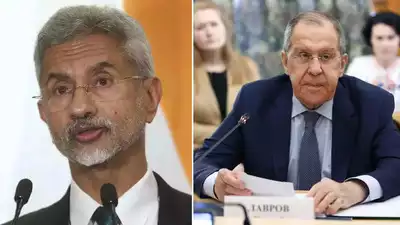Russia on Wednesday rejected US allegations regarding the involvement of Indian officials in a plot to assassinate Khalistani separatist leader Gurpatwant Singh Pannun, stating that Washington has yet to provide any “credible information” or “evidence” to support its claims.
Russian foreign ministry spokesperson Maria Zakharova accused the United States of attempting to “unbalance the internal political situation” in India and “complicate” the ongoing general elections.
“Washington lacks a simple understanding of India’s national mentality and history, as America continues to make unfounded accusations about religious freedoms,” Zakharova said during her address. She asserted that Washington’s actions represent interference in India’s internal affairs and pointed out the lack of evidence in these accusations.
The Russian spokesperson criticized the US for its “wrongful accusations” against various countries and described the American government as a “repressive regime” in international and national affairs.
In November of the previous year, US federal prosecutors charged Indian national Nikhil Gupta with working alongside an Indian government employee in a failed plot to assassinate Gurpatwant Singh Pannun. Pannun, who holds dual citizenship in the US and Canada, is wanted in India on terror charges and has been designated as a terrorist by India’s Union home ministry under the anti-terror law Unlawful Activities (Prevention) Act.
Last month, a report by The Washington Post, citing unnamed sources, implicated a Research and Analysis Wing (R&AW) officer in the alleged plot to kill Pannun. The report named the R&AW official, Vikram Yadav, as the one who organized a “hit team” to carry out the operation, marking Pannun as a “priority” target.
Russia’s dismissal of the US claims highlights ongoing tensions between the US and its allies and the broader implications of such allegations for international diplomacy. The Russian response also reflects the sensitive nature of external interference in a nation’s internal affairs, particularly during election periods. These developments may further complicate diplomatic relations and underscore the importance of transparent and credible evidence in making such serious accusations.






